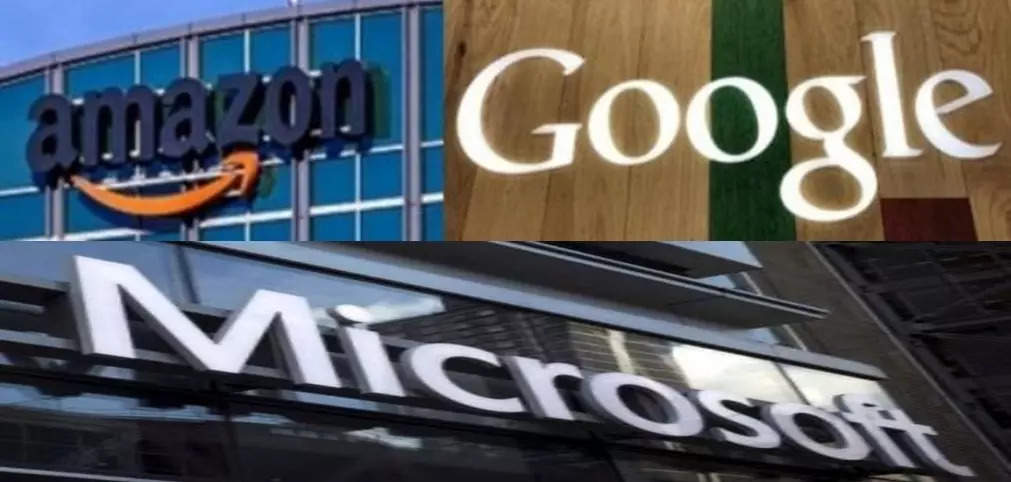
[ad_1]
Belgium’s telecoms regulator IBPT-BIPT has bad news for telecom operators in the country. IBPT-BIPT has ruled in favour of technology companies. There is no clear need to make technological giants help to pay for 5G and broadband rollout, Belgium’s telecoms regulator IBPT-BIPT said.
Europe’s telecoms operators have tried to push for major companies, such as Google and Microsoft, to help bear the cost of 5G technology, but that would probably require waiting for the next European Commission, following European Parliament elections next year, to decide on any rules.
Telecom operators, including Deutsche Telekom, have called for what they describe as “fair share funding,” which the Big Tech companies have said would amount to an internet tax.
EU industry chief Thierry Breton had been expected by EU telecom providers to propose legislation after seeking feedback from both sides by the end of June on what he said is an investment gap of 200 billion euros ($213.92 billion). He has yet to put forward any proposals and sources have said that means any legislation would have to wait for a new Commission to be in place.
The Belgian regulator also said that a permanent, separate fund to help finance temporary peaks in investments may not be appropriate because plans are in place for the rollout of fibre and because some rural areas will benefit from state aid.
What the report says
The BIPT feels that the necessity for the Belgian market to implement a compensation based on the volume of the Internet traffic is not established. Firstly, the traffic is generated by the free choice of end-customers paying for their Internet subscription. Secondly, Internet platforms and Internet providers have a mutual dependency resulting in a sustainable symbiosis in terms of interconnection,
CDN investments and efficiency gains such as video compression. For they have similar interests in providing the end-customer with a qualitative connectivity, something both parties strive after.
This does not exclude however that it is possible to stimulate certain measures to achieve more efficiency (development of advanced compression, automatic software uploads during off-peak hours, agreements regarding automatic occupation of bandwidth etc.).
Although investors will possibly exercise more restraint because of the high inflation and interest rates, sufficient capital seems to be available for the financing of the roll-out of access networks; in rural areas the private investment is sometimes supplemented with state aid. Regarding the Internet backbone, where costs are only traffic sensitive to a certain degree, decreasing unit costs compensate a part of the possible costs linked to increasing network traffic.
(with agency inputs)
Europe’s telecoms operators have tried to push for major companies, such as Google and Microsoft, to help bear the cost of 5G technology, but that would probably require waiting for the next European Commission, following European Parliament elections next year, to decide on any rules.
Telecom operators, including Deutsche Telekom, have called for what they describe as “fair share funding,” which the Big Tech companies have said would amount to an internet tax.
EU industry chief Thierry Breton had been expected by EU telecom providers to propose legislation after seeking feedback from both sides by the end of June on what he said is an investment gap of 200 billion euros ($213.92 billion). He has yet to put forward any proposals and sources have said that means any legislation would have to wait for a new Commission to be in place.
The Belgian regulator also said that a permanent, separate fund to help finance temporary peaks in investments may not be appropriate because plans are in place for the rollout of fibre and because some rural areas will benefit from state aid.
What the report says
The BIPT feels that the necessity for the Belgian market to implement a compensation based on the volume of the Internet traffic is not established. Firstly, the traffic is generated by the free choice of end-customers paying for their Internet subscription. Secondly, Internet platforms and Internet providers have a mutual dependency resulting in a sustainable symbiosis in terms of interconnection,
CDN investments and efficiency gains such as video compression. For they have similar interests in providing the end-customer with a qualitative connectivity, something both parties strive after.
This does not exclude however that it is possible to stimulate certain measures to achieve more efficiency (development of advanced compression, automatic software uploads during off-peak hours, agreements regarding automatic occupation of bandwidth etc.).
Although investors will possibly exercise more restraint because of the high inflation and interest rates, sufficient capital seems to be available for the financing of the roll-out of access networks; in rural areas the private investment is sometimes supplemented with state aid. Regarding the Internet backbone, where costs are only traffic sensitive to a certain degree, decreasing unit costs compensate a part of the possible costs linked to increasing network traffic.
(with agency inputs)
[ad_2]
Source link
